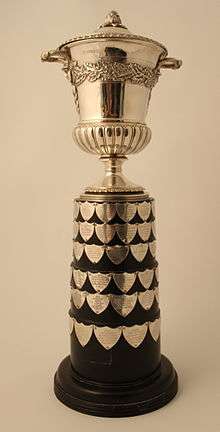Roehampton Club
The Roehampton Club is an exclusive private members’ sports club in Roehampton in southwest London, England. It is set in 100 acres (400,000 m2) of parkland, close to Richmond Park. Originally established in 1901 as an officers’ polo club, the Roehampton Club has a wide range of sporting and leisure facilities including an 18-hole golf course, 28 tennis courts, 5 squash courts, 4 croquet lawns, indoor and outdoor swimming pools, a gym, fitness studio, health and beauty clinic and bridge room.[1]
Early history

At the turn of the 19th century there was a tremendous strain on the polo clubs of London to provide for the growing interest in the sport. Clubs existed in the vicinity of the capital but were considered to be too far to travel. It was the initiative of the Miller brothers that began the formation of the Roehampton club to alleviate this problem. Edward Miller had left the 17th Lancers in 1893 to start Rugby Polo Club at his home in Warwickshire. His brothers Ted, Charles (an Olympic polo player) and George had developed one of the largest polo pony supply businesses in Europe. Together they met with the other interested parties and formed a Limited Liability company to create the club. Lord Shrewsbury was appointed as the chairman and Adolphus Cambridge, 1st Marquess of Cambridge was made president.
Charles Darley Miller set out to find the land which needed to be close to the Hurlingham Club and Ranelagh Club for ease of transportation of polo ponies. The original facilities included three polo grounds, a racecourse, a horse show ground, an area where women could practice driving, tilting and jumping and stabling for the members horses. in 1904 a golf course was built with nine holes, this was later expanded to 18.
The Roehampton club opened in April 1902 under the management of Charles Darley Miller. The Roehampton Trophy, donated by Mrs Alison Cunninghame of Craigends, was first played for in this year. The Trophy is now the oldest polo trophy played for in England and the tournament is held at Ham Polo Club in Richmond, London. There were also Junior competitions and a tournament where all the players and teams were selected by ladies. The cups were presented to the ladies who picked the winning team.
The first 400 members paid no entrance fee and though the club was considered to be a poor relation to the Hurlingham and Ranelagh clubs this was not the case. Members and regular polo players included Admiral Lord David Beatty, Sir Winston Churchill, the Marques de Villavieja, Lord Hugh Salisbury, the Grand Duke Mikhail Mikhailovich, and the Duke of Westminster. King Alfonso XIII of Spain was so fond of playing at the club he paid for a grandstand to be built on top of the clubhouse for his entourage to use.[2]
Inter-war years
Polo and equestrianism at Roehampton recovered quickly after the First World War. The club was now being managed by Clement Charles Lister who with the assistance of John Arthur Edward Traill and the Miller brothers took a keen interest in the development of newcomers to the sport of polo.
There were a number of key polo players at the club during this time including 10-goal Charles Thomas Irvine Roark, 9-goal Eric Horace Tyrrell-Martin and John Arthur Edward Traill.
Membership
Applicants must be proposed and seconded by their personal friends for membership of Roehampton Club. Candidates are invited to attend a meeting with a Director of the Club who may endorse their application before submitting it to the Board for approval. A week prior to each Board Meeting, a list of prospective members is displayed in the Clubhouse for all Members to see. The waiting list is operated in date order and there is one in-take of new Members each January. The number of resignations received by the end of each year determines the vacancies available the following year.[1]
See also
References
- 1 2 The Roehampton Club Official Website
- ↑ Horace A. Laffaye (2009). The Evolution of Polo. McFarland & Company. ISBN 0-7864-3814-2.